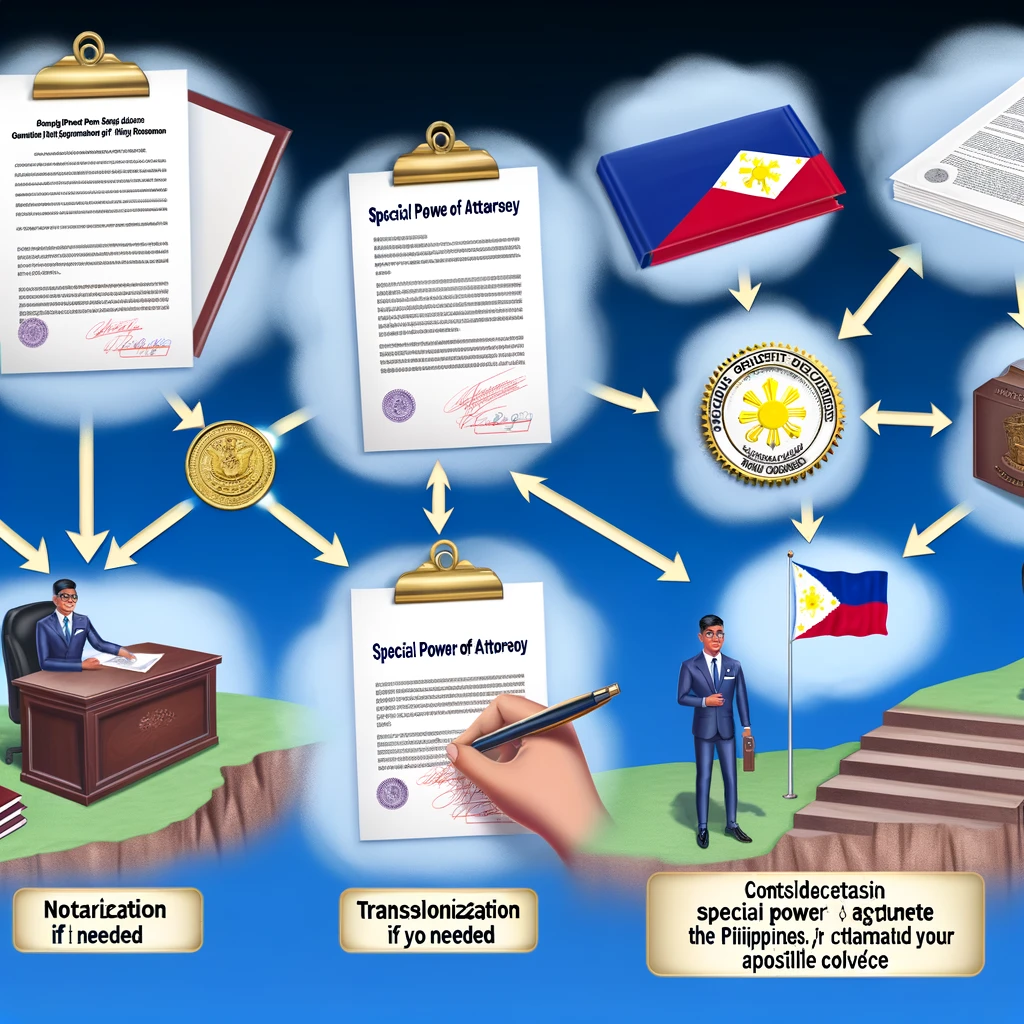Navigating the legal framework to obtain a Special Power of Attorney (SPA) for use in the Philippines while you are in Canada can be intricate. This document is essential for authorizing another person to legally act on your behalf in the Philippines, especially for transactions that require your personal presence. Given Canada's accession to the Apostille Convention on January 11, 2024, the process of making such documents officially recognized in the Philippines has been streamlined. This article provides an in-depth guide on how to acquire an SPA and ensure its validity in the Philippines through Apostille certification, emphasizing how Global Document Solutions, with over thirty years of expertise, can facilitate this process efficiently.
Step 1: Drafting the Special Power of Attorney
The first step is to draft the SPA. It is crucial that the document clearly outlines the scope of authority you are granting, including specific transactions or activities the appointee is authorized to perform on your behalf. You can seek legal assistance to ensure the SPA meets all legal requirements. Here is a template for a Philippines special power of attorney provided by the embassy in Canada.
Step 2: Notarization of the SPA
Once drafted, the SPA must be notarized by a Notary Public in Canada. This step legally authenticates your signature and confirms that you understand and consent to the document's contents. Ensure that all parties involved are present during notarization, if possible, and bring valid identification documents.
Step 3: Apostille Certification in Canada
After notarization, the SPA needs to be apostilled to be recognized as valid in the Philippines. As of January 11, 2024, Canada's participation in the Apostille Convention allows for the simplified verification of documents between member countries.
You can obtain an Apostille certificate through Global Affairs Canada or a competent provincial authority in Alberta, British Columbia, Ontario, Quebec, or Saskatchewan, depending on where the SPA was notarized. The process involves verifying the notary's seal and signature on the document.
Note on Language and Translation
If the SPA is not in English or French, Canada's official languages, it must be translated before undergoing the Apostille process. The translation should be done by a certified translator, and both the original document and the translated version must be submitted for Apostille certification.
Step 4: Leveraging Global Document Solutions
Global Document Solutions, with over three decades of experience in handling such documents, stands out as the premier choice for facilitating this process. Our expertise covers not only the drafting and notarization of SPAs but also navigating the Apostille certification smoothly and efficiently. Our services include:
- Professional consultation to ensure the SPA meets all legal requirements.
- Coordination with certified translators if your document needs translation.
- Handling the Apostille process through the appropriate Canadian authorities.
Choosing Global Document Solutions means entrusting your legal document needs to a team of experts dedicated to ensuring your SPA is processed correctly, quickly, and without hassle.
Conclusion Trust The Experts @ Global Document Solutions
Obtaining a Special Power of Attorney for the Philippines while in Canada, followed by Apostille certification, is a process made significantly easier with the right guidance and expertise. By following the steps outlined above and leveraging the services of Global Document Solutions, you can ensure that your SPA will be recognized as valid in the Philippines, allowing your legal affairs to be managed without your physical presence.
For those seeking to navigate this process, Global Document Solutions offers the expertise, efficiency, and peace of mind needed to ensure your documents are in order, letting you focus on what matters most.


